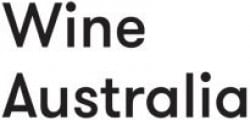Wine Australia

This project is the second phase of a program of work to develop a national certified standard for grapevine propagation material which is underpinned by current science and can be applied throughout the propagation supply chain and into vineyards.
The Australian wine sector currently lacks a quality assurance system which covers the entire propogation supply chain, from collections through to customers. It is also acknowledged that there are critical gaps in knowledge related to pathogen surveillance and diagnostics. This means that there can be only limited assurance that the material being supplied for vineyard plantings is 'disease-free' or of a certain provenance, creating uncertainty for buyers.
The long-term competitiveness and sustainability of the Australian wine sector hinges on the health, quality and integrity of its vineyards. Planting material is sourced from nurseries through the grapevine propagation supply chain, which also involves vine improvement organisations, grapevine collections, breeding and clone selection programs, post-entr quarantine facilities and private cutting suppliers. A quality nursery vine ready for planting is one that is of known type, healthy, establishes quickly and performs to expectations in the vineyard. This in turn depends on the quality of the rootstocks and scion cuttings entering the propogation chain and subsequent nursery management practices.
This project is the second phase of a program of work to develop a national certified standard for grapevine propagation material which is underpinned by current science and can be applied throughout the propagation supply chain and into vineyards.

-crop-850x675.png)
Have questions?
Find answers to our most frequently asked questions on research projects, commercial opportunities, organisations and more.
Still have questions or have feedback on the site? Please get in touch by completing our enquiry form.